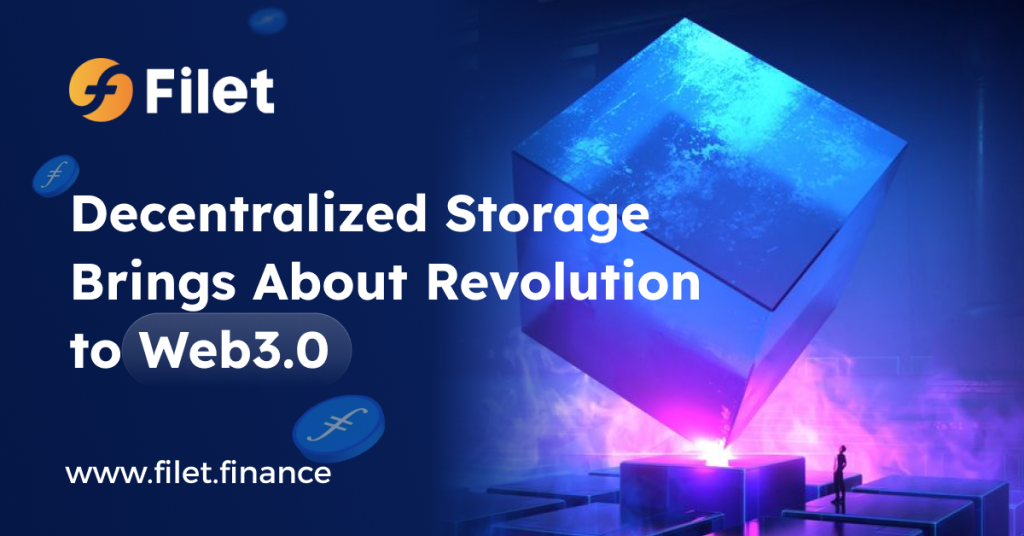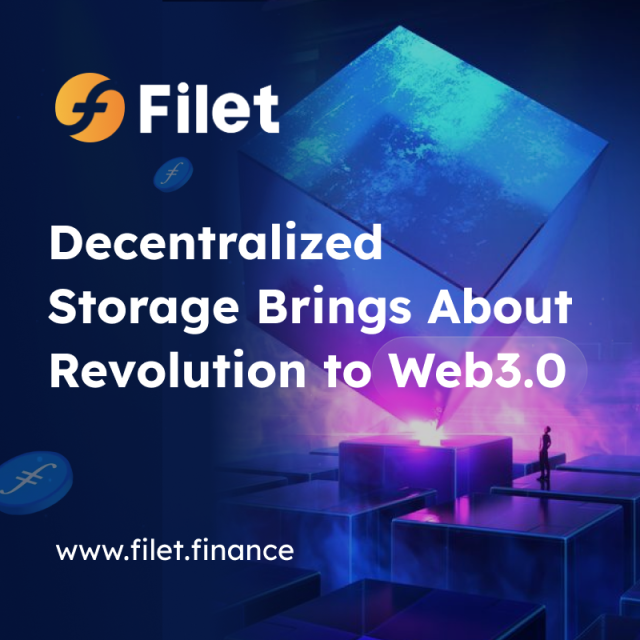
Traditional network storage systems use centralized storage servers to store all data. Storage servers become the bottleneck of system performance and the focus of reliability and security, which cannot meet the needs of large-scale storage applications. The original version of centralized storage can be time-consuming and difficult.
Data management will be a tricky challenge for firms. And the key is developing distributed network. The distributed network storage system uses multiple storage servers to share the storage load, and uses the location server to locate and store information. It not only improves the reliability, availability and access efficiency of the system, but also is easy to expand.
With the rise of Web3, decentralized storage solutions, which will ultimately allow users to archive, retrieve and maintain their own data, are in urgent need. Findings from Huobi Research Institute further show that increasing global storage data volume will elevate the cost of security and high power consumption, which will fuel the trend toward decentralized storage.
Marta Belcher, president and chair of the Filecoin Foundation claimed that decentralized systems offer an alternative to centralized systems for storing data and making websites available. She said:
“Today’s internet is centralized — right now, the majority of data making up the many websites we use every day sits in data warehouses owned by just three companies: Amazon Web Services, Microsoft Azure and Google Cloud. We have often seen these companies suffer blackouts, and swaths of the Web go down for hours — that’s the problem with having single points of failure.”
We have to admit that the storage system is currently in an unprecedented period of change. On the one hand, the development of big data has an increasing demand for data storage; on the other hand, the shipments of traditional storage manufacturers have not increased significantly, and even tend to decline. Therefore, an increasing number of people are looking forward to the revolution brought by distributed storage. For better understanding the future of decentralized storage, let’s learn more details together.
How do decentralized data storage systems work?
Unlike centralized storage systems where data is stored on multiple servers that are hosted in a centralized database, decentralized storage involves storing data across multiple computers. In a decentralized storage system, you can upload and download files from the network whenever and wherever needed.
Firstly, the decentralized storage systems divide the data into multiple chunks as “blocks”. It then encrypts every block with a specific hash or public-private keys. It also allocates the blocks across various systems and nodes. However, nodes in a decentralized storage system cannot view or alter your files. This is because all the data that you upload to a decentralized storage network will be encrypted by default. Therefore, all the date has rock solid protection and privacy, ensuring that your data is in safe hands. Moreover, decentralized storage systems store data in a wide P2P network regardless of the location. As a result, the transfer speeds of data are generally higher in decentralized storage as the entire process is handled by nearby peers but not the servers hosted in a physical location.
All in all, decentralized storage is where data is stored on a decentralized network across multiple locations by users or groups who are incentivized to join, store, and keep data accessible. The servers used are hosted by people, rather than a single company. Anyone is free to join, they are kept honest due to smart contracts, and they are incentivized to participate via tokens.
Advantages of Decentralized Storage Systems
Decentralized storage platforms are backed by a blockchain that offers transparency and verifiable proofs for data storage, consumption, and reliability through cryptography. This eliminates the need to rely on and trust a centralized provider. The advantages of decentralized storage are as following.
1. High reliability
Firstly, a decentralized storage system provides more reliability while distributing and storing the data. It also secures a copy of the files due to any hardware failures. Hence, this secures the data against hackers using various methods and specific hashes.
2. High scalability
Distributed storage will expand the cluster server, so that the system’s storage capacity, computing and performance capabilities are all improved. However, some enterprises have requirements for the performance of the underlying distributed storage system due to their large business volume. Distributed storage has a reasonable distribution architecture, which can help enterprises to expand elastic computing.
3. Data Consistency
Traditional storage architecture uses RAID mode to protect data security, while distributed storage uses multi-copy backup mechanism to maintain data consistency. When users store data, the data will be fragmented, and the fragmented data Saved on cluster nodes. Distributed storage uses one copy to write, while the other copies are read. When data reading fails, the system can read data from other copies and continue to write to the copy, ensuring the total number of copies However, if the data is inconsistent for a long time, the system will automatically rebuild and recover, which will minimize the business impact of the enterprise.
In conclusion, distributed storage has more advantages than traditional network storage. Filecoin is built on IPFS, based on the blockchain, and used to provide a data storage and retrieval method wherein users effectively rent providers’ unused storage drive space. It’s designed to make a network of storage providers operate like an enterprise-class setup. Therefore, the business prospect of Filecoin is the value change generated by the use of distributed storage technology, which is a vast blue ocean of value. Through Filecoin, the real implementation of business can be expected, which is a milestone in distributed storage.
About Filet
Filet is a Filecoin mining power tokenization protocol that deployed on BSC and HECO network. It tokenizes Filecoin mining power and introduces it into the DeFi ecosystem to provide FIL holders with high-growth FIL staking services. The mining power and assets are completely open and transparent.
Filet is backed by one of the largest storage providers in North America. The project is open source and audited by Certik. It is safe and secure to stake in Filet.
Webiste: www.filet.finance
Telegram: https://t.me/filet_finance
Twitter: https://twitter.com/Filet_finance
Medium: https://filet.medium.com/
Email: contact@filet.finance
